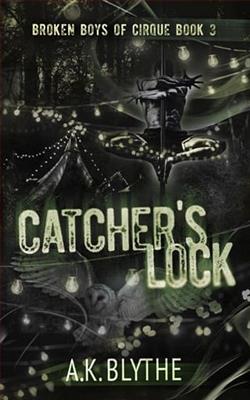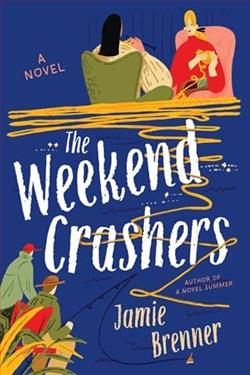Page 25 of Silver Dragon (Silver Shifters 1)
But she had to concentrate on her day’s tasks—the reward for which would be seeing him that night! She only wished the day would end sooner.
At Mr. Kleiner’s house, she found the elderly gentleman sitting in what had been a conservatory in the 1920s, when his mother—a famous film star during the silent pictures era—had first built the house. She had filled the place with exotic plants from all over the world. Many had not survived. But Mr. Noko had rescued the remaining ones when he’d appeared in Mr. Kleiner’s life.
“Bird, dear.” Mr. Kleiner looked wearily at her. He looked much older than his years, with his thin shoulders slumped.
Her urge to hurry through the day vanished. “What’s wrong?”
“The roof is leaking again,” he said, his thin voice quavering. “I tried to get on the ladder. I fell. I think I might have passed out.”
“What?” she exclaimed, horrified. “Why didn’t you call me? I would have come!”
“I know, but you can’t pick me up, dear Bird,” he said, a brief smile lighting his somber face. “Kuma Noko, of course, has no phone, and the young ladies were out.”
The “young ladies” were Ash and Morgana, his other tenants. They were a married couple who ran an animal rescue shelter on another part of the property.
Bird wrestled within herself. If Mr. Kleiner needed her, she would have to call Mikhail and cancel their plans. The thought hurt with breathtaking sharpness. But she had to do the right thing. “Let’s call the doctor,”
To her surprise, Mr. Kleiner shook his head. “No.”
Bird said tentatively, “I thought you liked Dr. Tranh.”
“I do, but I don’t want it looking like I’m not safe in my own home. Or that the house is falling apart. That I need to move somewhere safer, where I can be cared for. . .”
Bird understood his worry. His nephew and his wife had their eye on Mr. Kleiner’s beautiful house. If they could find an excuse to put him in a nursing home, they could move into his house. And kick the other tenants off the property, no doubt.
Mr. Kleiner turned unhappy eyes toward Bird. “I don’t know how much longer I can hold on.”
Bird shoved aside her plans for her dinner and did her best to distract him by asking about the progress of his latest painting. She fixed him a lunch while chatting to him about watercolors versus oil paints. After he ate, he admitted his bones were still rattled from his fall and went to take a nap. She washed up the dishes and tidied the kitchen. Ash or Morgana would come to check on him at dinner time, and Mr. Noko would be by bright and early, to help him with his shower and get him his breakfast.
Joy suffused Bird once again. With more energy than she’d felt for years, she raced back to her house, biked to the grocery store, raced back, and left the dinner baking in the oven while she pedaled madly to Doris’s place.
Doris drew her into her bright, cozy kitchen (“cozy” being the lovely peach and teal tile complementing the cream walls, as this kitchen was easily twi
ce the size of Bird’s), sat her down, poured out a cup of tea, then thunked her elbows on the table and said, “Talk.”
Bird’s eyes narrowed. “Godiva isn’t hiding in the next room, is she?”
“No, but she will be calling, probably in an hour, for a full report.”
“How does she even . . .”
“Bird! We all saw you looking at that art professor like a kid in a candy store. What’s more, he was looking at you the same way. Did he ask you out, or didn’t he?”
“He did. That is, he hired me for a drawing project, which we started this morning, then, well, he asked me if I’d like to go as his plus one tonight. It’s a formal thing at the university.”
Doris had been opening her cookie jar, but she paused, looking over her shoulder, brow furrowed. “How do you feel about going back there again?”
“It’s fine,” Bird said, with more confidence than she felt. “I realize I’ve avoided the place all these years, which is silly, really. It’s just a place.”
“It’s a place full of bad memories,” Doris said gently.
“Yeah, but at fifty-plus, maybe it’s time to get over them? The important thing is, it’s impossible that Bartholomew would be at the reception. I doubt he’s changed in twenty-seven years. If it’s not about him, or he doesn’t see a way to ‘use’ it, he would never attend a reception for a writer whose book lies about as far out of his interest as it’s possible to get.”
“Excellent,” Doris said. “Grab your tea and come into my bedroom. I have the closet open, and I’ve laid out a bunch of possible dresses.”
“Anything will do, as long as it more or less fits,” Bird said doubtfully.
Though she and Doris wore close to the same size, the weight was distributed differently. Doris was an inch taller. She had a nice figure, whereas Bird was pear-shaped. Specifically, Doris still had what in the old days was termed a splendid bosom (or as Godiva put it, a nice rack) whereas Bird’s breasts, at their best, had looked as appetizing (Bartholomew had said once, when she’d gathered up her courage to ask for sex after being given the cold shoulder for months) as a pair of over-poached eggs.















